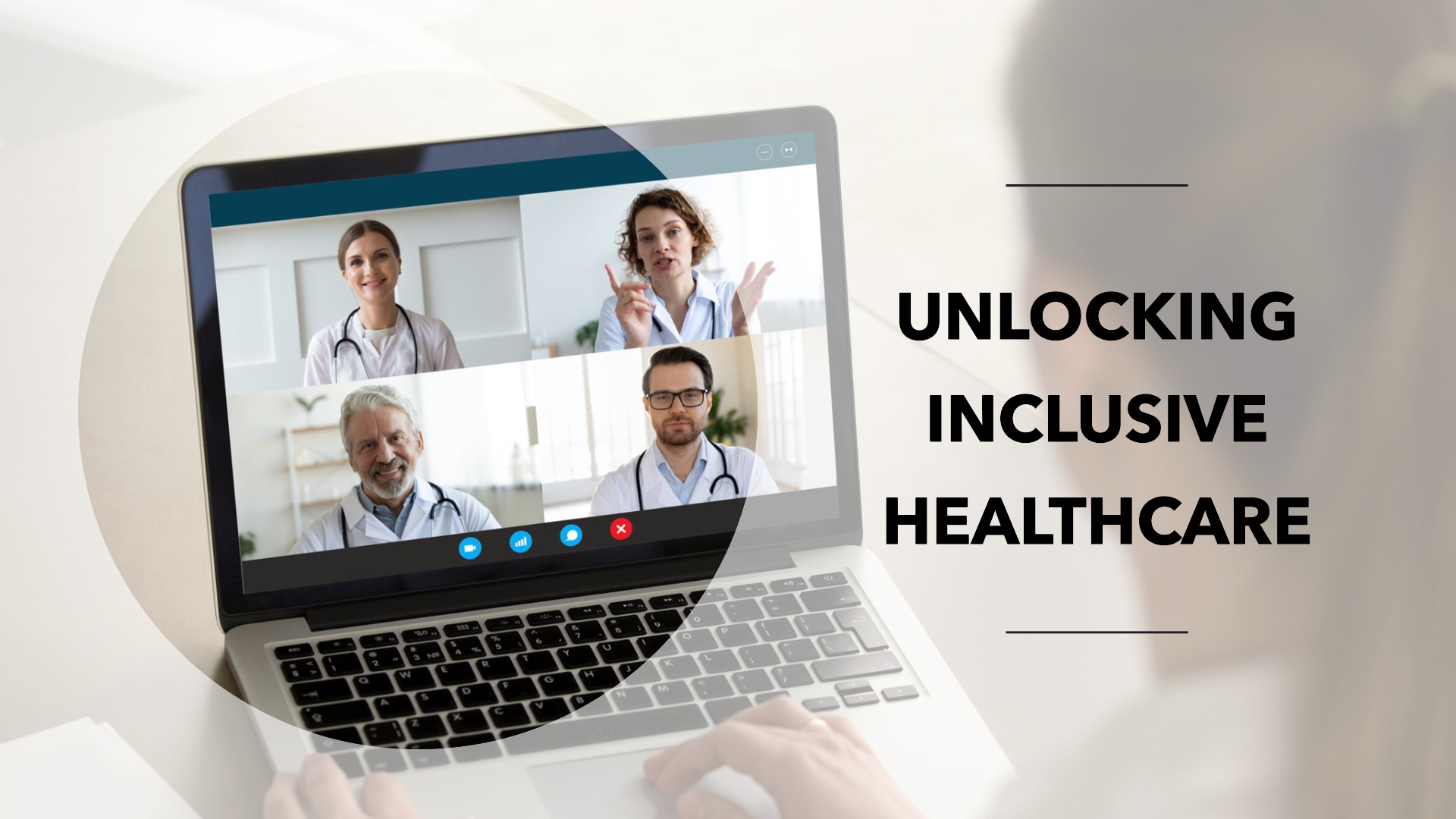Digital health is changing the way we address our health. We’re in a new age of healthcare, where technology is creating better ways to prevent and treat disease. Over the last few years, there has been a wave of growth in the number of digital health tools that are helping companies improve the way they deliver care.
Introducing the digital health revolution and its impact on the continuum of health care
Digital health, also known as digital transformation in health care, is defined by the World Health Organization (WHO) as “the process by which information and communications technology are used to support and improve health.”
The concept of digital transformation in health care is characterized by five core principles:
- Digital transformation means to adopt a technology-driven approach in health care and healthcare systems.
- Digital transformation for health care means that technologies should be integrated with existing infrastructure to deliver new services and new value to patients.
- Digital transformation for healthcare systems means that providers must embrace new technology and promote their use across the continuum of care, population groups and healthcare settings.
- Digital transformation for the consumer means that it will be easier to access personalized content, personalized insights through data analytics, self-learning tools via mobile apps, interoperability among devices and platforms, decentralized delivery mechanisms and better user experience including engaging content tailored for each individual user’s needs.
- Digital transformation for doctors means that they will be closer to their patients’ needs enabling more efficient diagnosis, more timely treatment, more individualized patient care and improved patient outcomes.”
The need for a rethink of how we provide and manage health care
Health care has changed. The healthcare industry is undergoing a transition and will continue to do so through the new digital age. It’s an important time to rethink how we provide and manage our health care.
It’s no secret that the healthcare industry is facing many challenges: rising costs, access issues, and poor patient outcomes, to name a few. With a rapidly aging population and a growing number of chronic conditions, we need solutions now more than ever.
As a result of these challenges, providers are looking at ways to improve quality while reducing costs and improving outcomes for patients. One way that this can be done is with telemedicine technology.
The question is, what does “health” really mean? What are we trying to achieve with healthcare? In reality, it does not mean the same thing that it did when healthcare was born as a profession in the late 19th century, nor does it mean what we think it means today, that you get your health through medical treatment rather than prevention of disease or treatments for certain types of ailments that are out of your control.
Today’s healthcare crisis is an issue beyond the scope of this article. But in some ways, the issue at hand is one of how we view our health care – how we think about disease prevention versus treating diseases after they have already made their way through our bodies and into our systems. We need to look at these issues from a different perspective than simply focusing on treating patients with certain illnesses throughout their lives or trying to prevent them at all costs. Instead, we need to question whether or not our current approach is working for us, and perhaps even putting more pressure on ourselves by expecting more from ourselves and pushing ourselves harder.
I will attempt to answer these questions by examining the origins of health care in a society where life expectancy was higher than ever before (and why), looking into who was responsible for its growth and development, and then considering some future prospects as well as what other solutions might be available for achieving these goals in the future. In doing so, I hope readers will agree that there are many aspects to consider when discussing what can be done about these issues which have been largely ignored in recent years.
The benefits of digital health for individuals and the health care system
The last decade has seen a revolution in healthcare. The rising incidence of disease, increased health care costs and the aging population have put pressure on the healthcare system to improve efficiency in order to meet the needs of patients. In response, there has been a growth in “new” or “alternative” forms of health care such as home-based health monitors, telehealth, home infirmaries and electronic medical records. Each involves an approach to managing health care that may be alternative, at least in theory, but none of them have undergone significant mainstream adoption. Yet whether these approaches will be successful depends on whether they can make good use of disruptive technologies to enable better patient outcomes and reduce costs.
Healthcare is under transformation. Innovative methods are being used to improve patient outcomes and decrease costs. The need for greater innovation is supported by data showing that the effectiveness of existing treatments varies widely across different populations (for example, aspirin for coronary heart disease is widely accepted but does not work for people with diabetes).
Similarly, many people who become very ill with “simple” conditions like pneumonia do not respond well to standard treatments like antibiotics or anticoagulants (blood thinners).
While many areas are under transformation such as medicines and diagnostics, there is a need for some form of digital health monitoring and support systems that can make use of disruptive technologies such as wearable devices (e-readers), smartphone apps or cloud computing to enable better patient outcomes.
In the health care industry, we’re seeing some major changes in the way people are treated and monitored. While many areas are under transformation such as medicines and diagnostics, there is a need for some form of digital health monitoring and support systems that can make use of disruptive technologies such as wearable devices (e-readers), smartphone apps or cloud computing to enable better patient outcomes.
One area where this kind of technology has already been used is with diabetes management. The goal of diabetes management is to keep blood sugar levels within a normal range. This can be done by eating healthy foods and exercise regularly, but there has also been a rise in mobile apps that help people manage their diabetes. These apps provide information about how much insulin you should take or how much carbohydrate you need so that it’s easier for patients to stay on top of their condition without having to track everything manually every day which can be difficult when you’re juggling other responsibilities like work or family commitments.
Another area where digital health monitoring systems can make an impact is depression treatment because it’s challenging for doctors to determine whether someone has depression without them being actively suicidal or having suicidal thoughts at all times during treatment sessions.
The challenges posed by digital health and how they can be overcome
One of the biggest challenges for today’s health care system is that it is not a single system, but a series of interconnected systems. These systems are composed of many different components and each requires different solutions to achieve the same overall goal.
The goal of health care is to provide care to patients in need, while also keeping costs low while ensuring high quality. However, there are many different ways to achieve this goal and no one solution will work for every patient or provider.
To solve this problem, we need to understand how each part of the system works and how they interact with one another. We also need to understand how they interact with the patient themselves, their needs, their physical condition and their financial situation all play into what kind of treatment they receive and how much it costs them in the long run.
The health care industry has been struggling with this problem for decades, but we now know that it can be solved by using a holistic approach to gain control over our health through the use of technology. The world is changing rapidly, with more and more people being connected to the internet and mobile devices. In this era of rapid change, we need strong organizations that can adapt and thrive in an increasingly complex environment.
One solution is to build an organization that understands the needs of all stakeholders, patient, provider, employer, and their individual roles in their health care delivery process. Medical technology has changed dramatically over the past decade and this needs to be reflected in how healthcare is managed.
The future of digital health and its implications for the continuum of care
Healthcare is a complex and ever-evolving system. While we have the ability to care for ourselves, it’s not necessarily easy. We’re often asked what does the future of healthcare look like and how will it be different from the past?
The future of healthcare depends on how we approach our health. We need to find sustainable ways to make care more accessible and affordable. We also need to address the challenges that come with personalization, as well as ensure that quality care is provided in a way that doesn’t compromise patient safety.
Health care is changing rapidly, and you need to adapt to these changes if you want your patients to come back. In fact, your patients might even appreciate the fact that they don’t have to be spoon-fed information about their health or how best to live their lives anymore. Here’s why:
- Patients are becoming more informed about their own health and they want more control over it
- Patients are also demanding better service from doctors and other medical professionals
- Patients are looking for a more personalized experience in their doctor’s office
So what does this mean for you? Well, first of all, it means that your expert knowledge needs to be put into action. You can’t just tell your patients what’s wrong with them anymore; instead, you need to give them resources so they can take charge of their own health.
Secondly, if your practice is not currently catering to these trends, then it could be costing you patients (and revenue). Studies have shown that when patients feel like they’ve been treated well by their doctors or nurses—or even just had a positive interaction with a receptionist—they’re more likely to return for follow-up visits or additional treatments in the future!
The old model of health care, where people would go see a doctor, get a prescription, and then take that prescription home and follow it exactly as prescribed—is slowly going away. That’s because patients are becoming more educated about their own bodies and what they can do to stay healthy. They want information about their conditions and treatment options presented in a way that’s easy for them to digest: not just in terms of biology or chemistry but also in terms of lifestyle choices.
This shift in patient expectations means that doctors need to do more than just prescribe medication; they also need to educate their patients on how those medications work, what side effects they might experience, and what other lifestyle changes could help them achieve better results.
I was inspired to write this article after my conversation with Matthew Holt – Publisher, The Care Blog. In this episode, we talked about #HealthPolicy in #Healthcare and many aspects of care that are under transformation. As #digitalhealth evolves, the continuum of care needs to be redesigned.
Watch Episode #70 of Digital Health & Wearables Series:
Contact us for more relevant details. To find out more about how we can help you with your Digital Healthcare Transformation, Healthcare organizational growth, or Healthcare brand positioning, please get in touch via phone +44 (0) 203 3620421 or via e-mail: info@digitalsalutem.com





